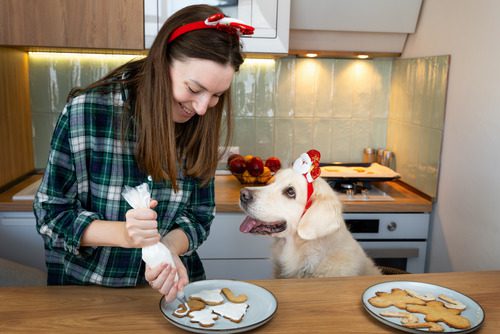Holiday treats can be tempting for everyone in the family including our dogs. The scent of freshly baked gingerbread cookies can have your pup’s nose in overdrive, and some pet owners may wonder, can dogs eat gingerbread? While this popular seasonal snack might seem harmless, it’s not the safest choice for your dog. Certain ingredients commonly found in gingerbread can cause digestive issues and even serious health risks. If you live in the Fort Lauderdale area and have concerns about what your dog has eaten, call Central Broward Animal Hospital at (954) 792-6223 or request an appointment online. Below, we’ll break down everything you need to know about gingerbread and its impact on canine health.

What’s in Gingerbread That Makes It Unsafe for Dogs?
Gingerbread might sound wholesome, especially because ginger is known to ease stomach upset. But when it comes to dogs, the full recipe tells a different story. Many gingerbread recipes contain ingredients that dogs should avoid.
Nutmeg and Dogs: A Dangerous Combination
One of the biggest concerns in gingerbread is nutmeg. This spice contains a compound called myristicin, which is toxic to dogs. Even a small amount can lead to symptoms like disorientation, increased heart rate, high blood pressure, stomach upset, and seizures in more serious cases. Because nutmeg is used in most gingerbread cookies and cakes, it makes the treat unsafe.
Sugar and Fat Content
Gingerbread is typically high in sugar and fat, both of which can upset a dog’s digestive system. Consuming sugary, fatty treats can lead to vomiting, diarrhea, and long-term issues such as obesity or pancreatitis. Dogs that already have sensitive stomachs or pre-existing conditions are especially at risk.
Xylitol: A Hidden Threat in Sugar-Free Versions
If you’re baking sugar-free gingerbread or buying it from a store, check for xylitol, which is a common artificial sweetener that’s highly toxic to dogs. Ingesting xylitol can cause a dangerous drop in blood sugar (hypoglycemia), seizures, liver failure, and even death. Xylitol poisoning requires emergency treatment, so it’s important to be vigilant with any “diet” or sugar-free foods.
Can Dogs Eat Gingerbread in Small Amounts?
You might wonder if just a tiny bite of gingerbread is safe. While one small crumb may not cause immediate harm, regularly offering gingerbread or larger amounts introduces unnecessary risk.
There’s No “Safe” Amount of Nutmeg
Even a small amount of nutmeg can be harmful, depending on your dog’s size, age, and health status. Because symptoms can take several hours to show up, it’s best to avoid gingerbread altogether rather than take the chance.
Repeated Exposure Can Lead to Health Problems
Offering your dog bits of gingerbread during the holidays might seem like a fun treat, but repeated exposure to high-fat, high-sugar snacks can contribute to weight gain, gastrointestinal distress, and even chronic conditions like diabetes. Choosing treats made for dogs is a much safer and healthier alternative.
What Happens If a Dog Eats Gingerbread?
Accidents happen, especially during the busy holiday season. If your dog manages to snag a piece of gingerbread from the table or trash, it’s important to watch for any signs of illness.
Signs to Watch For
After eating gingerbread, your dog might experience:
- Vomiting or diarrhea
- Loss of coordination
- Excessive drooling
- Increased heart rate
- Lethargy or restlessness
- Abdominal pain
- Seizures (in severe cases involving nutmeg or xylitol)
These symptoms can appear within a few hours or take longer, depending on the quantity and your dog’s sensitivity.
When Should You Call Your Vet?
If you suspect your dog ate gingerbread, especially if it contained nutmeg, xylitol, or other unsafe ingredients, contact your veterinarian immediately. In Fort Lauderdale, Central Broward Animal Hospital is ready to help. Call (954) 792-6223 if your dog needs care or observation after ingesting something questionable.
Safer Alternatives to Gingerbread for Dogs
The good news is that there are plenty of festive, dog-safe treats you can offer instead of gingerbread. These options let your dog enjoy the holiday fun without risking their health.
Ginger (By Itself) Is Usually Safe
Ginger itself—without added sugars or spices—can actually be safe in small amounts for most dogs. It’s known to ease mild nausea and aid digestion. However, it should only be offered in moderation and under the guidance of your veterinarian. Avoid offering ginger in baked goods or processed forms.
Homemade Dog Treat Recipes
If you enjoy baking, consider making your own dog-friendly holiday treats. Many recipes use simple, safe ingredients such as:
- Pumpkin puree
- Oat flour
- Peanut butter (xylitol-free)
- Cinnamon (in small amounts)
- Unsweetened applesauce
These ingredients create tasty, wholesome treats that dogs love—and that won’t jeopardize their health.
Commercial Holiday Treats Made for Dogs
You can also find specially made seasonal treats at pet supply stores or through your veterinarian. These treats are formulated with dog-safe ingredients and don’t contain dangerous spices or sweeteners.
Holiday Hazards Beyond Gingerbread
Gingerbread isn’t the only holiday food you should keep away from your dog. The winter season comes with many potential dangers in the kitchen and around the house.
Chocolate and Raisins
Both of these ingredients are toxic to dogs and often appear in holiday baked goods. Chocolate contains theobromine, which affects the heart and nervous system, while raisins (and grapes) can cause kidney failure.
Alcohol and Raw Dough
Keep alcoholic drinks and unbaked dough out of your dog’s reach. Alcohol can be extremely toxic, and raw yeast dough can expand in the stomach and cause serious complications.
Holiday Decorations
Dogs may chew on string lights, tinsel, or ornaments, leading to injuries or intestinal blockages. Candles and potpourri also pose risks if knocked over or ingested. Being aware of these hazards helps you create a safer environment for your dog, especially when your home is busy with guests or festive chaos.
Why It’s Better to Avoid Gingerbread Altogether
You might still be asking yourself, can dogs eat gingerbread if it’s just a nibble? While it may not always cause an emergency, feeding your dog gingerbread doesn’t offer any health benefits and the risks far outweigh the reward. The presence of nutmeg, sugar, and sometimes xylitol makes gingerbread a dangerous treat for dogs. Even if your dog doesn’t show symptoms right away, regular exposure to these ingredients can have long-term health consequences. With safer alternatives readily available, it’s simply not worth the risk.
Give Your Dog a Safe and Happy Holiday Season
Instead of sharing gingerbread, choose treats made for dogs that align with their dietary needs. Your dog won’t miss what they never had, and they’ll be happier and healthier without the added sugar, fat, or toxic ingredients. If you’re unsure whether your dog ate gingerbread or is showing signs of illness, contact Central Broward Animal Hospital right away at (954) 792-6223. Our team in Fort Lauderdale is here to help protect your pet’s health all year long. For expert advice and prompt care, schedule your pet’s appointment today.
